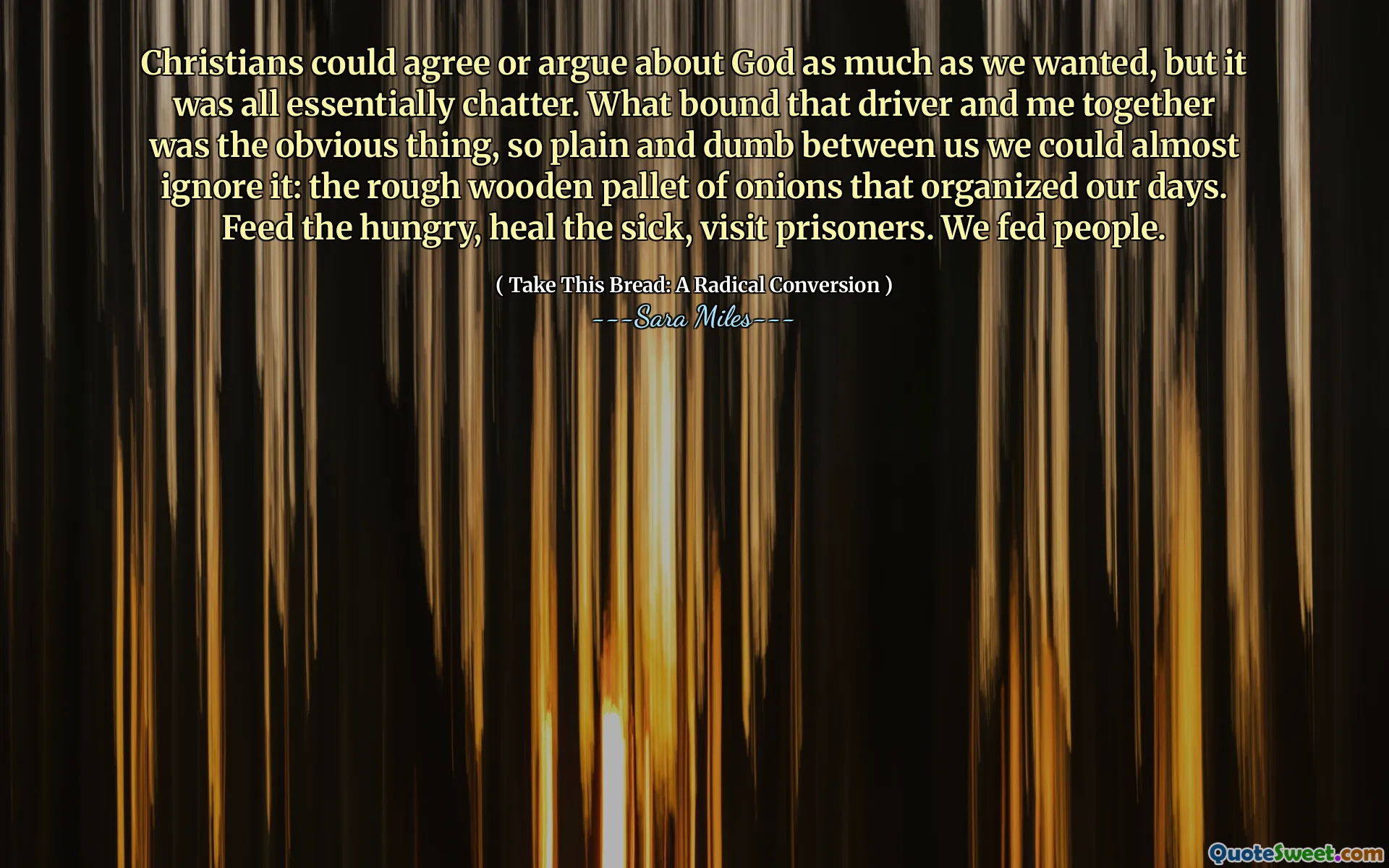
Christians could agree or argue about God as much as we wanted, but it was all essentially chatter. What bound that driver and me together was the obvious thing, so plain and dumb between us we could almost ignore it: the rough wooden pallet of onions that organized our days. Feed the hungry, heal the sick, visit prisoners. We fed people.
This quote beautifully highlights the essence of practical compassion that often eclipses doctrinal debates within faith communities. It serves as a reminder that, at its core, Christianity—and many other religions—advocates for tangible acts of love and service rather than merely theological discourse. The image of the 'rough wooden pallet of onions' symbolizes humility and everyday toil, emphasizing that simple, physical acts—feeding the hungry, healing the sick, visiting prisoners—are the real manifestations of faith in action. These acts forge genuine connections that transcend words and doctrinal disagreements, grounding spirituality in real-world service. It invites reflection on how easily religious people can get caught up in internal debates while losing sight of the core mission to alleviate suffering and foster community. The driver and the narrator sharing a common task underscores the idea that shared service becomes a unifying force, momentarily surpassing differences of belief. This perspective challenges believers to prioritize compassionate acts over theological quarrels, reminding us that faith is often most powerful and authentic when expressed through kindness and service. It underscores the importance of recognizing the visible, practical expressions of love as the true measure of faithfulness, rather than the sometimes abstract or divisive theological debates that can distract from the essence of spiritual life. Ultimately, it advocates for a faith rooted in action, in community, and in the simple but profound act of caring for one another—an idea both timeless and urgently needed in today’s world.






